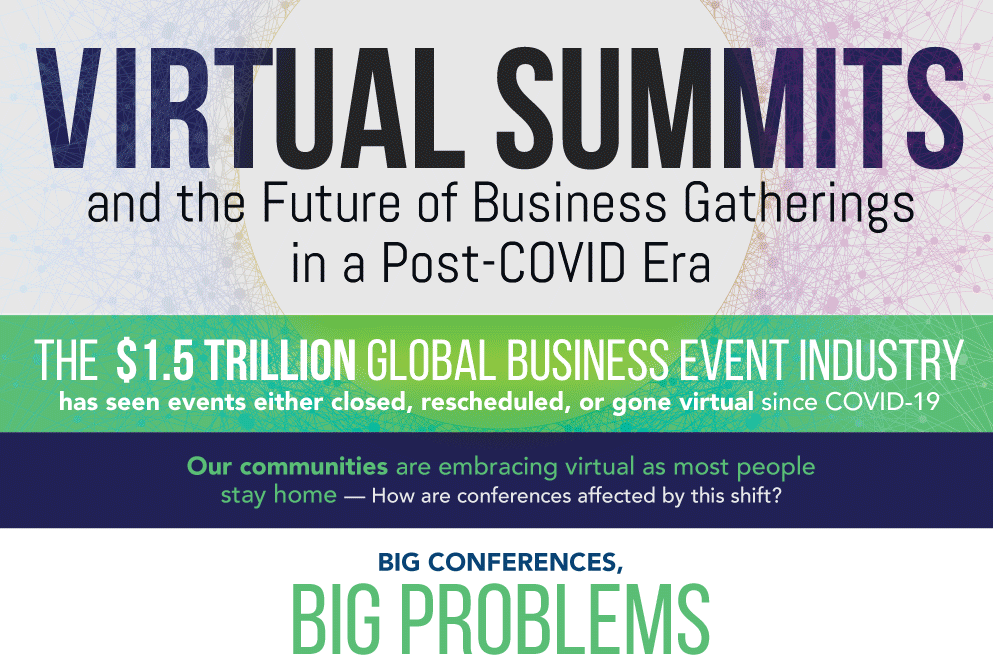COVID-19 has caused governments and companies alike to start closing down huge conferences and events – the $1.5 trillion global event industry has seen the vast majority of events close, rescheduled, or go entirely virtual. In February, Facebook announced that it was cancelling the annual F8 tech conference, Twitter has shut down any unnecessary travel until further notice – including barring CEO Jack Dorsey from attending SXSW in March, which itself was canceled soon after. Even the World Health Organization’s annual conference was closed due to coronavirus fears.
Even before COVID-19 struck down conferences and events, many were phasing out due to a number of reasons. A lack of focusing on specific topics as events grow can be harmful and create a negative experience for event-goers. “3,000 attendees would come for one things and 1,000 would come for something else. If you’re developing for PC’s, do you care about AI or self-driving cars?” says Jack Gold, principal analyst at J Gold Associates. After nearly 20 years running, Intel canceled its annual Developer Forum conference due to this very reason. Events can be very harmful to attendees as well. The combined effects of alcohol, jet lag, tight travel schedules, and overscheduling can leave people feeling overwhelmed and over-stressed. As of 2020, the most popular tech conference tickets can cost all the way up to $4,000, not including travel expenses, work missed, and accommodation costs.
Canceled conferences mean huge losses for businesses on every step of the way. Events bring in more than $1 trillion in direct spending. Events that have tens or even hundreds of thousands of attendees, like SXSW, E3, and Mobile World Congress, are losing millions upon millions of dollars in direct losses. Many people that use these conventions as a main source of gaining new clients or selling their products are reporting huge losses.
Learn more about how virtual summits are adapting to COVID-19 and how conventions will change after coronavirus here.


